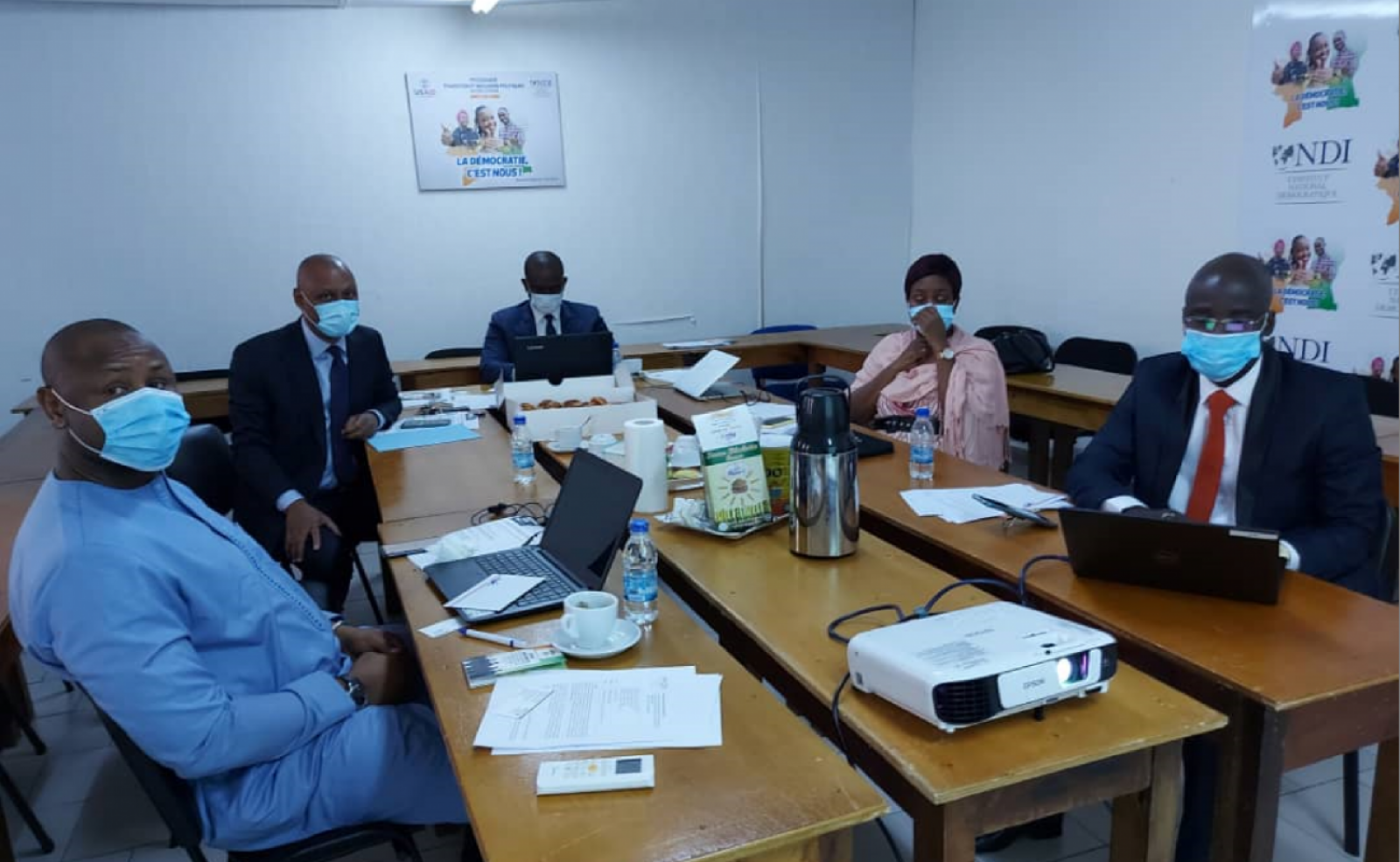
Since 2020, NDI has supported political party representatives from the Economic Community of West African States (ECOWAS) member states through the Political Party Strengthening Academy (PPSA) program in collaboration with the National Endowment for Democracy (NED). Recognizing the impact that parties have on functioning democracies, the program aims to advance democratic party reform initiatives. The Institute has conducted several skills-building webinars on themes identified during initial consultations with parties, such as internal and external communication, the use of ICT tools, and constituent relations. The PPSA program builds on representatives’ experiences in parties and their concerns and priorities for party reform to provide resources and guidance for developing inclusive, internal democratic reform initiatives. Critically, the PPSA works to combat trends of democratic backsliding in the region by motivating decision-makers to shape parties and their practices that reflect the democratic inclusivity necessary to sustain democratic practices on a national and regional scale
Regional West Africa: Political Party Strengthening Academy II Launch Conference
On May 25, the Political Party Strengthening Academy (PPSA) held its virtual launch conference for the program’s second phase, bringing together over 20 political party leaders from across West Africa. The conference brought together participants from the first phase of the PPSA program, to share their reform priorities for the next year and discuss strategies for reform success. Many PPSA participants also discussed their concerns on the lack of inclusion of women and youth in the democratic process. The PPSA team encouraged program participants to invite party leaders to the conference, to demonstrate the value and potential impacts of internal reforms.
Three political party leaders used this opportunity to share their parties’ goals and strategies for reform, focusing on the inclusion of women and youth. A party leader from The Gambia shared his party’s belief that better inclusion will create more party success, and that the party must create reforms allowing for more inclusive decision-making regarding constituents’ governance. A conference speaker from Niger noted that over 70% of the country’s population is under 35. His main concern is ensuring that political parties are of interest to young people and that youth are adequately prepared to one day govern the country. Finally, a party leader from Burkina Faso discussed his party’s efforts to increase the inclusion of women and youth with the eventual goal of reaching parity. As a result of the party’s initiatives, women and youth now constitute 47% and 60% of internal party bodies, respectively, and young people represented 40% of the names on the electoral list during last year’s November elections. Overall, these three leaders provided practical examples of implementing reforms and improving inclusion for other program participants.
In addition to the participation of prominent party leaders, the conference also featured a presentation from the Head of Democracy and Good Governance at ECOWAS. In his presentation, the ECOWAS representative outlined the steps that the organization is taking to promote the democratic strengthening of political parties throughout West Africa. ECOWAS highlighted several priorities, including mainstreaming women and youth into party activities and building upon campaign financing to achieve reform goals. During his presentation, the ECOWAS representative encouraged parties to seek opportunities for more bilateral collaboration with the organization, which is prepared to serve as a resource for reform-minded party leaders.
In the coming year, PPSA II will engage participants in informational events, curriculum training sessions, and informal, virtual coffee hours. PPSA II will launch its first curriculum training series on June 29.